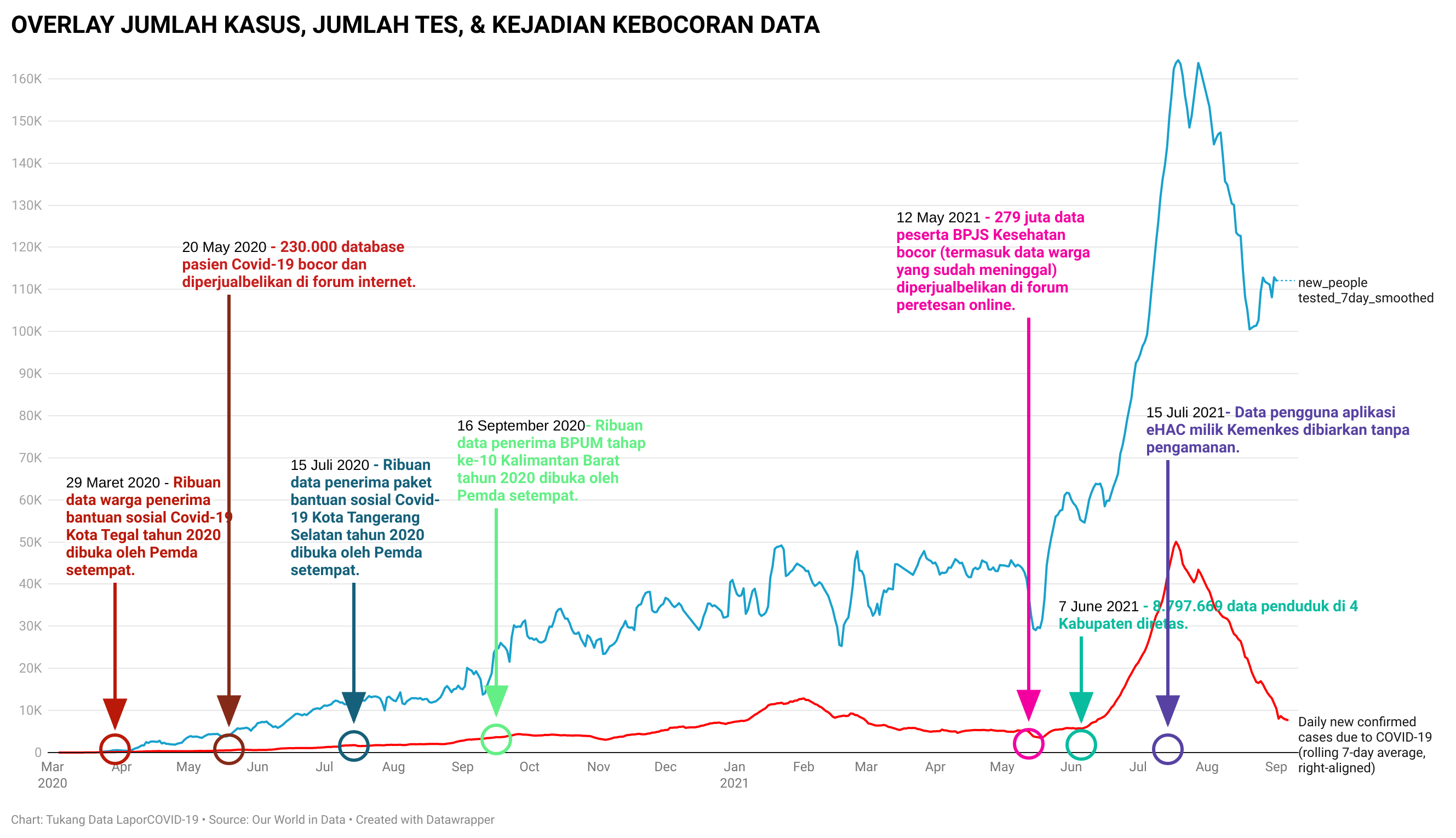Failures in Saving Lives and Protecting Citizen’s Personal Data
PRESS RELEASE
Failures in Saving Lives and Protecting Citizen’s Personal Data
After reports of COVID-19 patients’ data being sold, now allegedly, there are data leaks of the data from eHAC and even the President’s vaccine certificate. How far our data security goes?

Following points are translation for points inside the graph)
- 29 March 2020 > Thousands of data belonging to people who received the 2020 Covid-19 social aid in Tegal City were made available by the local government (Pemda).
- 20 May 2020 > Database that contained 230.000 Covid-19 patients’ data was breached and traded on internet forums.
- 15 July 2020 > Thousands of data belonging to people who received the 2020 Covid-19 social aid in Southern Tangerang City were made available by the local government (Pemda).
- 16 September 2020 > 279 million data of Social Health Insurance Administration Body (BPJS) members (including the ones who already passed away) were being traded in hacker’s online forums.
- 12 May 2021> Thousands of data belonging to those who received the 10th
Advokasi Pandemi
Bantuan SosialKetidaksetaraan Vaksinasi Covid-19Pembebanan Biaya Rawat Covid-19Pendidikan dan Pembelajaran Tatap MukaPerlindungan Nakes
Advokasi Pandemi
Bantuan SosialKetidaksetaraan Vaksinasi Covid-19Pembebanan Biaya Rawat Covid-19Pendidikan dan Pembelajaran Tatap MukaPerlindungan Nakes
Kontak Kami
Yayasan Warga Berdaya untuk Kemanusiaan
Komplek Ruko Bona Indah Plaza Jalan Karang Tengah Raya, Kec. Cilandak, Kota Adm. Jakarta Selatan, Provinsi DKI Jakarta, Kode Pos: 12440